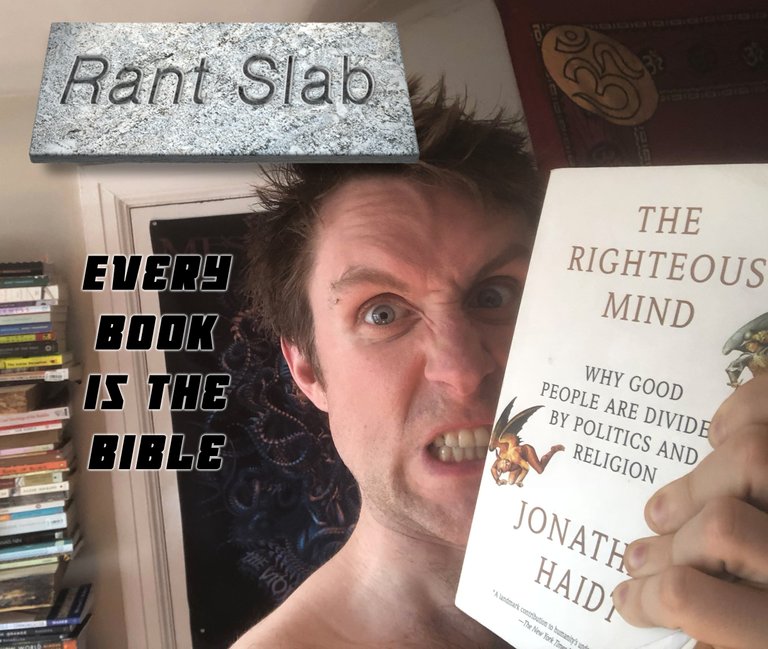
Lately I’ve been becoming mindful of an interesting phenomenon that is seeming to happen to me more and more often when I consume Non-Fiction books. During some part of the book I basically begin to feel the need to totally adopt whatever position the author is arguing from (whether or not they are even trying to be truly persuasive) and almost completely re-orient my life. It’s seems like I start to actually invest my ego into the information that I’ve ingested and take anything that goes against these opinions personally, though they aren’t even my opinions, and may not even be that solid arguments in the grand scheme of things. It feels like I owe something to myself for the time I’ve spent reading this book to utilize the information and change my personal outlook in accordance with it.
If describing this internal phenomena charitably, I would say this generally manifests as an outgrowth from the empathic desire to totally inhabit the mindspace of the author, and to really grasp their arguments in their best possible form. A less charitable description would perhaps be seeing it as my ego becoming pointlessly attached to things totally extrinsic to me, such as books and other people’s opinions. Like some kind of information parasite. It’s a strange thing to start feeling yourself “rooting” for people’s arguments just because you’ve read and enjoyed their books, and then feeling like you need to choose a side one someone presents a reasonable counter argument.
Some of the specific book/arguments I’ve encountered this with are Robert Wright’s books, “The Moral Animal”, and “Non-Zero”, Steve Pinker’s “The Blank Slate”, Jonathan Haidt’s “The Righteous Mind” and Chris Ryan’s “Sex at Dawn”. For example, when I first read “Sex at Dawn” it totally and completely changed my view of human evolution and how sexuality relates to that. But I had really no outside knowledge on this topic until many years later when I read Robert Wright’s “The Moral Animal” which presents information on the same topic but draws some very different conclusion. I then listened to a podcast where both authors debated their disagreements, and I was able to decide who compelling argument. It was certainly hard to let go of my early attachments to both books but ultimately it totally worth it. It also made me so deeply grateful where I live in a world that not only do I have free access to life-changing literature, but there are things like podcasts where these author’s can publicly disagree with each-other and it enriches my understanding exponentially.
Anyways, almost ending this rant. Basically I think that it is really important to put your everything into constructing the most charitable / accurate interpretation of everything you read, but also being aware of when your ego begins to attach to arguments out of a strange kind of sunk-cost-fallacy book tribalism.
.png)
TRUTH
Books take a long time to read. It's no surprise you feel invested in them by the time you reach the end.
Sometimes I think it's healthy to approach most books with the attitude, this is probably bullshit. I mean, it might not be the most generous attitude, but in an age of such abundance, we have to be a little selective, don't we? And then if an author is able to get past this filter, it's more likely they really do have something meaningful to say.
hmm, I find myself more applying that filter when I'm choosing whether or not to read a book in the first place, and then It's usually based on a recommendation from a trusted source or from hearing the authour make a compelling case/summary of what they are arguing. And of course, the longer the book the more actual investment we feel in them! Just another psychological mechanism to be vigilantly mindful of.